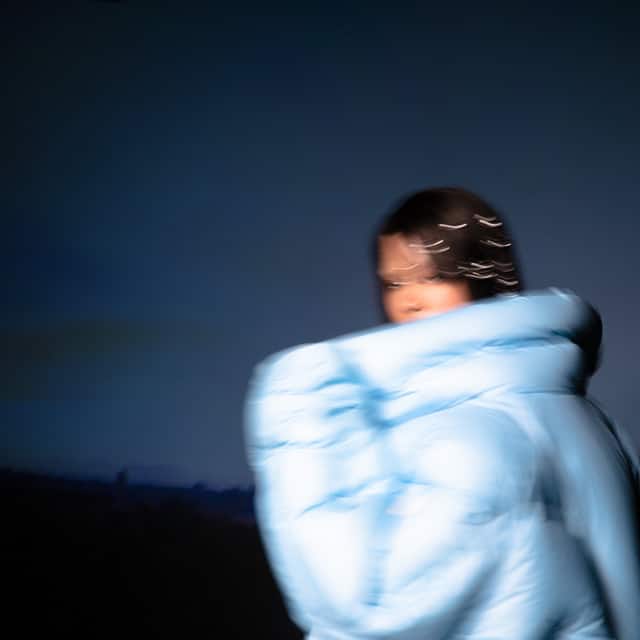Shygirl’s new album ‘Nymph’ showcases the frank sexuality and ingenuity that immortalized both mythical figures Calypso and Odysseus. In this project, the London-born underground artist Blane Muise acknowledges the age-old notion of female sexuality before challenging it altogether.
Odysseus – a universally renowned figure of Greek mythology – was praised for his versatility and eloquence, and above all, immortalized for his cunning intelligence. During the Ogygian period, he suffered under Calypso’s imprisonment for seven years. Under Calypso’s ensnarement, we are introduced to the insatiable archetype of the nymph, whose desires of making Odysseus her eternal husband would seal her own fate. Just as Calypso’s identity was maligned and eclipsed, the frank sexuality and ingenuity that immortalized both mythical figures are reappraised in Shygirl’s full-length debut.
Nymph’s own state of undress is stirred by “Woe’s” chorus of high-pitched vocals emitted from the void, their tonal identities adjacent to sirens–aural chameleons whose mythos transforms into something more threatening. In the same vein as Madonna and Dido, Shygirl channels vulnerability amidst the bawdy image that encompasses a majority of her discography. Nymph’s siren song gives full breadth to the fantasies and desires that are her own as much as the titular figures whom she takes after. It asks what it means to be bad, and the significance of ever wanting to be ravished, mauled, and adored. In melding the ominous side of electronic landscapes with the brazen sex appeal that draws one to explore their own multiplicities and contradictions, the music is stylistically similar to Europop anthems (the accordion on “Poison” a welcome nudge towards Romanian house) moments before being gangrened by mutant reggaetón steppers (the Arca-produced “Come For Me”).
Even in the latter’s transition to the sampled static of “Shlut,” contemporary sounds are reverse-engineered to resemble the genres from which they evolved. And it is in the midst of “Shlut” where Blackheath’s finest utters the most ardent line of her career so far:
“I wish I were you just to get a piece of me.”
A broad stroke canvassing itself into a mosaic full of fervent expressions of desire and control, Shygirl continues to find herself within the sheer zeal of establishing and reclaiming one’s sexual agency at all costs. Take “Coochie (a bedtime story).” If the title wasn’t whimsical enough to elicit a purse-lipped giggle, then its bridge is a surefire way to fail at repressing a heartier laugh:
“So, does that mean somewhere out there/There’s a coochie waiting for me?”
While Shygirl floats with wonder on the receiving end of being down, the dream pop fantasies shimmering in all of its fairy-dusted audacity become clear. In reveling within the fruits of this sonic jungle, we are treated to shamelessly orgasmic daydreams amorphously slithering from shattered lullabies to disjointed reflections.
It comes as no surprise then that Muise admitted to devouring fantasy books as a child. At this very moment, her work continues to make space for those who thrive on the anonymity of (de)constructing fantastical worlds. Be it through creating under aliases or physically concealing identities altogether, Shygirl’s comfort in the spotlight remains attributed to the secrecy of London’s underground, allowing for her to continue the most adept aspect of her artistry. That in using her voice as an instrument to express the very knowledge of Black female beauty through all its hardships and denial, and that in returning tender, the pleasure principle of Black femininity is fulfilled–in all of its hype dimensional, monumental exuberance.
Where ALIAS documented glimpses of intimate encounters that were nothing short of bloodthirsty in nature, ‘Nymph’ tears into the flesh of its own character to reveal aspects of Shygirl’s persona that complement her musicality, and vice versa. While Muise’s greatest strength easily lies in her satisfyingly languid voice, very few pop heavyweights in the commercial stratosphere can also make the likes of Mura Masa, Sega Bodega, and Vegyn feel part of a sonic ecosystem, namely one that strengthens Muise’s proverbial voice and gives Nymph its undeniable power.
Nymph reaches a climax that culminates years of experimental foreplay, its steeliness the center of Muise’s own pleasure principle–that is, to continue to liberate a good (and sometimes bad) shag, by any means necessary. Even if she seldom sings above her speaking register, Shygirl’s work recognizes its own limits and remains as aurally malleable as female sexuality itself. Her provocations expand into otherworldly and beautifully complex territories historically written off as frivolous taboo. In doing so, Muise’s craft paints the mythos of the nymph into eternity.









